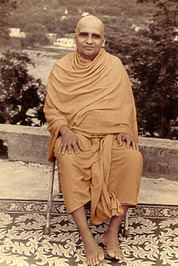It occurred to me whilst reading Joseph Campbell’s Pathway to Bliss, that if we have no models of nameless now, then, well, we have no models.
Whatever conclusions we draw from this are our own doctrine(s) making themselves visible. For some the need to qualify and argue with such a proposition is tantamount (regardless of whether or not the author suggests their words be broadcast as superior wisdom or truer truths). For others there exists a desire to understand what it means for their own insight-now-moment.
 Swami Krishnananda says there is, “a transference of human attributes to the Divine Existence [when] one contemplates the Cosmos as one’s Body. Just as, for example, the one contemplates one’s individual body, one simultaneously becomes conscious of the right eye, the left eye, [and so on] and all the limbs of the body at one and the same time, and one does not regard the different limbs of the body as distinguished from one another in any way, all limbs being only apparently different but really connected to a single personality, so in [the Vaisvanar Vidya] meditation, the consciousness is to be transferred to the Universal Being. Instead of one contemplating oneself as the individual body, one contemplates oneself as the Universal Body… The limbs of the Cosmic Person are identified with cosmic elements and vice versa, so that there is nothing in the cosmos which does not form an organic part of the Body of the Virat, or Vaisvanara…” (p6)
Swami Krishnananda says there is, “a transference of human attributes to the Divine Existence [when] one contemplates the Cosmos as one’s Body. Just as, for example, the one contemplates one’s individual body, one simultaneously becomes conscious of the right eye, the left eye, [and so on] and all the limbs of the body at one and the same time, and one does not regard the different limbs of the body as distinguished from one another in any way, all limbs being only apparently different but really connected to a single personality, so in [the Vaisvanar Vidya] meditation, the consciousness is to be transferred to the Universal Being. Instead of one contemplating oneself as the individual body, one contemplates oneself as the Universal Body… The limbs of the Cosmic Person are identified with cosmic elements and vice versa, so that there is nothing in the cosmos which does not form an organic part of the Body of the Virat, or Vaisvanara…” (p6)
He goes on to say, “[that] whatever our mind can think, becomes an object for the mind; and that object, again, should become a part of the meditator’s Body, cosmically. And, the moment the object that is conceived by the mind is identified with the Cosmic Body, the object ceases to agitate the mind anymore; because that object is not any more outside…” (pp6-7)
Then, perhaps, even though we have no models of it (at least none we recognise as such), the notion of the mind itself can be identified with the Cosmic Body, with the Cosmic Existence; and rather than ‘objects of the mind’ becoming part of the ‘meditator’s body’ (in order to transfer consciousness to the Universal Being), contemplation itself can be identified with the Cosmic.
This would ostensibly cut out the middle man, so our every moment is a cosmic contemplation, simultaneously one as the so-called appearance of not-one. Whence it would be a function of the one for what we have labelled the appearance of not-one to fathom itself however it fathoms itself (rather than a path taken or not taken by an individual). And all that is apparently different but really inter-conected to a single field or oneness, would be known-felt-explained in those terms – oneness as an organic contemplation of oneself, cosmically.
References
The Māndūkya Upanishad (1996) by Swami Krishnananda
Pathway to Bliss: Mythological and personal transformation (2004) by Joseph Campbell
